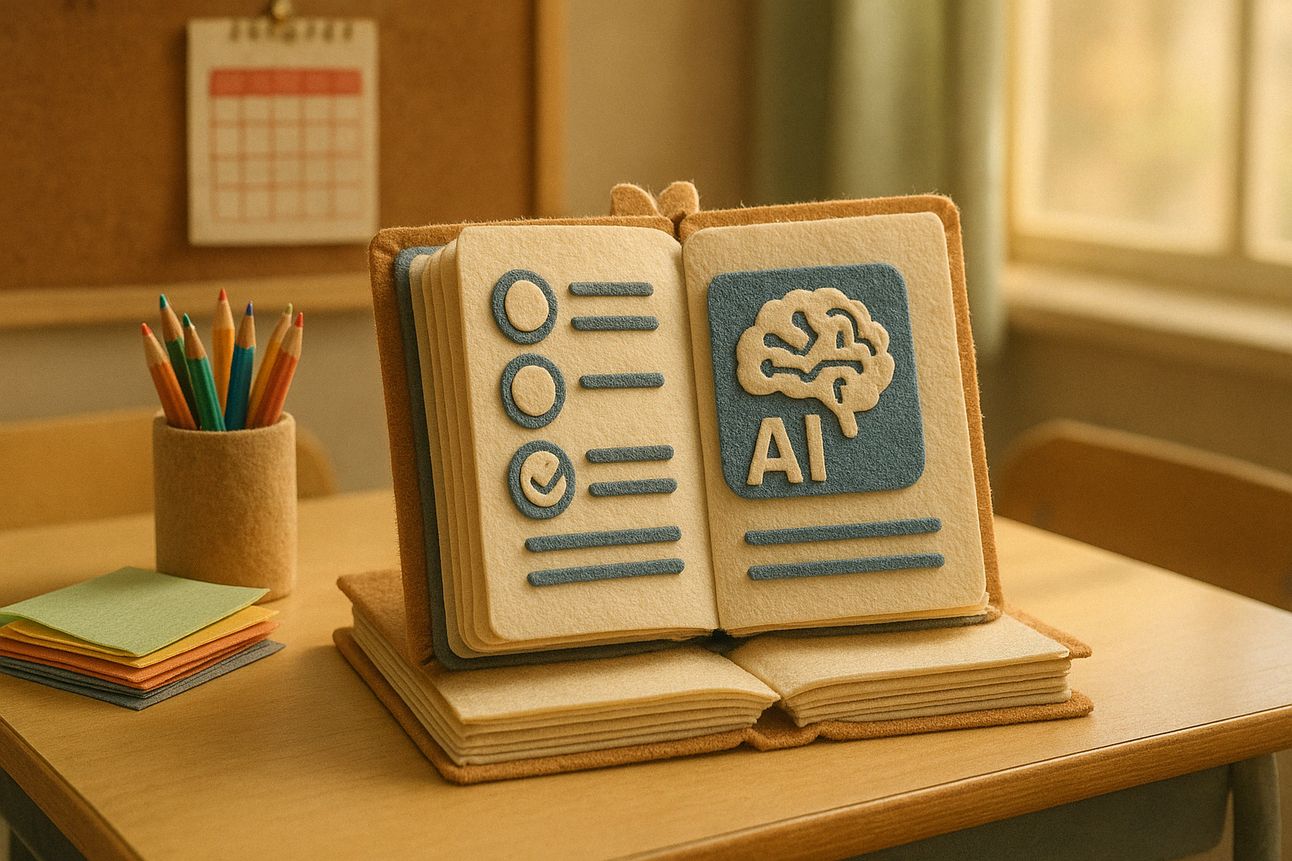- Today On AI
- Posts
- Google Classroom gives teachers an AI feature for quiz questions
Google Classroom gives teachers an AI feature for quiz questions
AND: OpenAI Launches GPT-4.1 Models Tailored for Coders and Agents

✨TodayOnAI’s Daily Drop
Google Classroom gives teachers an AI feature for quiz questions
OpenAI Launches GPT-4.1 Models Tailored for Coders and Agents
OpenAI Retires GPT-4.5 API Access—Here’s What Comes Next
💬 Let’s Fix This Prompt
🧰 Today’s AI Toolbox Pick
| 📌 The TodayOnAI Brief |

🚀 TodayOnAI Insight: Google Classroom is expanding its Gemini-powered AI tools with a new feature that helps teachers auto-generate questions from custom text. This move deepens Google's push to streamline classroom prep for educators using AI.
🔍 Key Takeaways:
The new tool generates questions based on user-provided text or uploaded files from Google Drive.
Educators can customize output by grade level, question type (multiple choice or open-ended), quantity, and learning objectives.
Questions can be exported directly into Google Docs or Google Forms for easy classroom use.
The feature is exclusive to Workspace for Education users with the Gemini Education ($24/user) or Premium ($36/user) add-ons.
Builds on Gemini’s prior capabilities like generating lesson ideas, vocabulary lists, and summarizing content.
💡 Why This Stands Out: By anchoring question generation to specific instructional content, Google is making AI more relevant to everyday classroom workflows. The granular filters—by skill, question type, and grade—suggest a thoughtful design for real pedagogical use, not just automation for its own sake. As Gemini evolves into a true teaching assistant, will it shift how educators plan and personalize instruction at scale?
OPEN AI

🚀 TodayOnAI Insight: OpenAI has launched a new family of AI models—GPT-4.1, 4.1 Mini, and 4.1 Nano—designed to excel at coding, improve complex instruction following, and boost agent development. The models outperform GPT-4o and even surpass GPT-4.5 in key coding benchmarks, signaling OpenAI’s aggressive push to stay ahead of rivals like Google and Anthropic.
🔍 Key Takeaways:
Model lineup: GPT-4.1 series includes three sizes optimized for code generation and software prototyping.
Performance gains: GPT-4.1 scored 55% on SWE-Bench, exceeding previous OpenAI models, and is 40% faster than GPT-4o.
Developer benefits: Offers 8x greater code context, improved bug fixing, and 80% lower input costs.
Early feedback: Partners like Windsurf report 60% improvement over GPT-4o with fewer irrelevant file edits.
Broader rollout: Available now via OpenAI’s API, with demo apps and livestream validation by OpenAI executives.
💡 Why This Stands Out: OpenAI’s coding-focused GPT-4.1 models sharpen its competitive edge in developer tooling and AI agent creation—both fast-growing sectors. As rivals flood the market with high-performing models, OpenAI is differentiating through speed, affordability, and developer-centric features. The shift hints at a broader trend: the next wave of AI dominance may come from tools that build and reason with software, not just text.
OPEN AI

🚀 TodayOnAI Insight: OpenAI is retiring GPT-4.5 from its API just months after launch, citing high costs and strategic focus on future models. Developers have until July 14 to transition to GPT-4.1, the newly released alternative with similar performance at lower cost.
🔍 Key Takeaways:
GPT-4.5 deprecation: OpenAI will end GPT-4.5 API access on July 14, just five months after its release.
GPT-4.1 as successor: OpenAI launched GPT-4.1 as a drop-in replacement, claiming equal or better performance at a reduced price.
Cost considerations: GPT-4.5 is expensive to operate—$75 per million input tokens, $150 per million output tokens—prompting its phase-out.
Availability in ChatGPT: GPT-4.5 will remain accessible in ChatGPT’s research preview for paying users, despite API deprecation.
Model background: Codenamed Orion, GPT-4.5 used more compute and data than any prior model but failed to meet "frontier" AI benchmarks.
💡 Why This Stands Out: OpenAI’s decision signals a strategic shift toward efficiency and scalability over sheer model size. GPT-4.5’s short-lived API run highlights the growing pressure to balance performance with cost—especially as AI workloads intensify. Is the era of ultra-large, ultra-expensive models already being rethought?
| 💬 Let’s Fix This Prompt |
✨ See how a simple prompt upgrade can unlock better AI output.
🔹 The Original Prompt
"Generate blog ideas for a Blogging."
At first glance, this prompt might seem okay. But it's too broad — and that limits the quality of AI-generated results. Let’s improve it using prompt engineering best practices.
✅ The Improved Prompt
Generate 10 unique blog post ideas for a blog that teaches people how to start and grow their own blog. Focus on beginner-friendly tips, content strategy, SEO basics, and monetization methods. Include a mix of tutorials, listicles, and thought leadership formats.
💡 Why It's Better
Specifies the target audience (beginner bloggers)
Focuses on practical and relevant themes (SEO, content, monetization)
Includes blog post formats (tutorials, listicles, etc.)
Encourages variety and depth
🛠️ Learn how to adapt this prompt for SaaS, AI tools, dev teams & more →
Read the full PromptPilot breakdown
💡 Bonus Tool: Want to generate and master prompts instantly?
👉 Try PromptPilot by TodayOnAI (Free to use)
| 🧠 Smart Picks |
📰 More from the AI World
🧰 Today’s AI Toolbox Pick
🕵️♀️GoSearch (Apps Tool): Searches across work apps with multimodal-AI enterprise search.
🧠Predev (Developers Tool): Provides instant software planning and lightspeed development.
📬Chat Collect (Email Tool): Gathers emails from your GPT users to boost engagement.